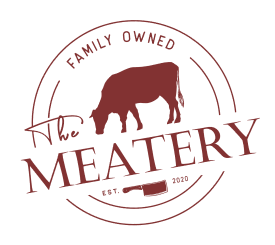The journey of a Wagyu cow is a fascinating combination of genetics, careful breeding, and meticulous raising practices. True Wagyu beef comes from specific Japanese cattle breeds: Japanese Black (Kuroge), Japanese Brown (Akage), Japanese Polled (Mukaku), and Japanese Shorthorn (Nihon Tankaku). The term "Wagyu" literally translates to "Japanese cow."
The process begins with selective breeding of pure Wagyu cattle. These animals possess unique genetic characteristics that enable them to develop substantial marbling - the intramuscular fat that gives Wagyu its distinctive appearance and flavor. The genetic predisposition for marbling is enhanced through careful raising practices:
- Early Life: Calves are kept with their mothers for longer periods compared to conventional beef cattle
- Diet: A carefully controlled diet rich in high-quality grains and grasses
- Time: Wagyu cattle are typically raised for 2-3 years, significantly longer than the 15-18 months for conventional beef
- Environment: Low-stress environment with minimal physical activity to promote proper fat distribution
In Japan, Wagyu cattle raising follows strict regulations and traditional methods. Each animal has a unique identification number and detailed breeding records, ensuring pure bloodlines. The careful attention to diet and lifestyle allows the cattle to develop their characteristic marbling gradually and naturally, resulting in the highest quality beef.
Is Wagyu healthier than regular beef?
Contrary to what many might expect from such richly marbled meat, Wagyu beef offers several health advantages over regular beef. The unique fat composition of Wagyu makes it a healthier choice in several ways:
- Monounsaturated Fats: Wagyu contains a higher percentage of monounsaturated fats (good fats) compared to regular beef
- Omega-3 and Omega-6: Better ratio of these essential fatty acids
- Conjugated Linoleic Acid (CLA): Higher concentrations of this beneficial fatty acid
Research has shown that Wagyu beef contains up to 30% more monounsaturated fat than regular beef. These healthy fats are similar to those found in olive oil and are associated with reduced risk of cardiovascular disease. The meat also contains higher levels of essential fatty acids and vitamins compared to conventional beef.
Additionally, the unique marbling in Wagyu beef has a lower melting point than regular beef fat, making it more easily digestible. This characteristic also contributes to its buttery texture and rich flavor profile while potentially being easier on the digestive system.
Grading And Quality Standards For Wagyu Beef
Wagyu beef grading follows an intricate system that evaluates multiple factors to determine quality. The Japanese grading system, considered the gold standard, uses a combination of letter and number grades:
- Yield Grade: A, B, or C (measuring the amount of usable meat)
- Quality Grade: 1-5, with 5 being the highest
- BMS (Beef Marbling Score): 1-12, with 12 being the highest
The highest possible grade is A5, which represents exceptional yield and quality. The grading criteria include:
- Marbling (fat distribution)
- Meat color and brightness
- Firmness and texture
- Fat color, luster, and quality
Outside Japan, different countries have developed their own grading systems for Wagyu, though most attempt to align with the Japanese standards. Australian Wagyu, for example, uses a similar but slightly modified system to maintain consistency with international markets.
Wagyu Vs. Other Beef
When comparing Wagyu to other premium beef varieties, several key differences become apparent. The most notable distinction is the level and quality of marbling:
- Marbling Pattern: Wagyu features finer, more evenly distributed fat marbling
- Fat Quality: Lower melting point and higher percentage of healthy fats
- Texture: More tender and buttery compared to conventional beef
- Flavor Profile: More complex and intense umami flavor
Compared to USDA Prime beef (the highest U.S. grade), even lower-grade Wagyu typically shows superior marbling. While premium Angus beef might score 4-5 on the marbling scale, high-grade Wagyu regularly scores 8-12. This translates to significant differences in taste, texture, and overall eating experience.
Health Benefits And Nutrition
Wagyu beef offers a unique nutritional profile that sets it apart from conventional beef. Key nutritional benefits include:
- Higher levels of intramuscular fat rich in omega-3 fatty acids
- Greater concentration of conjugated linoleic acid (CLA)
- More abundant essential amino acids
- Higher levels of glutamine
These nutritional characteristics contribute to several potential health benefits:
- Improved cardiovascular health due to better fat composition
- Enhanced muscle development and maintenance
- Better immune system support
- Potential anti-inflammatory properties
While Wagyu is still a rich food that should be consumed in moderation, its unique nutritional profile makes it a healthier choice compared to regular beef when part of a balanced diet.
What does Wagyu taste like?
The taste experience of Wagyu beef is often described as transcendent, offering a complex flavor profile that's distinctly different from regular beef. The meat delivers:
- Initial Taste: Rich, buttery flavor that coats the palate
- Texture: Exceptionally tender, almost melting in the mouth
- Umami: Intense savory notes with a sweet undertone
- Finish: Long-lasting, pleasant aftertaste
The high level of marbling creates a unique mouthfeel that's often described as buttery or velvety. When cooked properly, the fat melts at a lower temperature than regular beef fat, creating a rich, juicy experience that's both tender and flavorful.
The flavor is often described as more complex and nuanced than regular beef, with subtle notes that can include hints of sweetness, nuttiness, and a distinct umami character that lingers on the palate. This unique taste profile is a direct result of the meat's exceptional marbling and the specialized raising methods used in Wagyu production.









